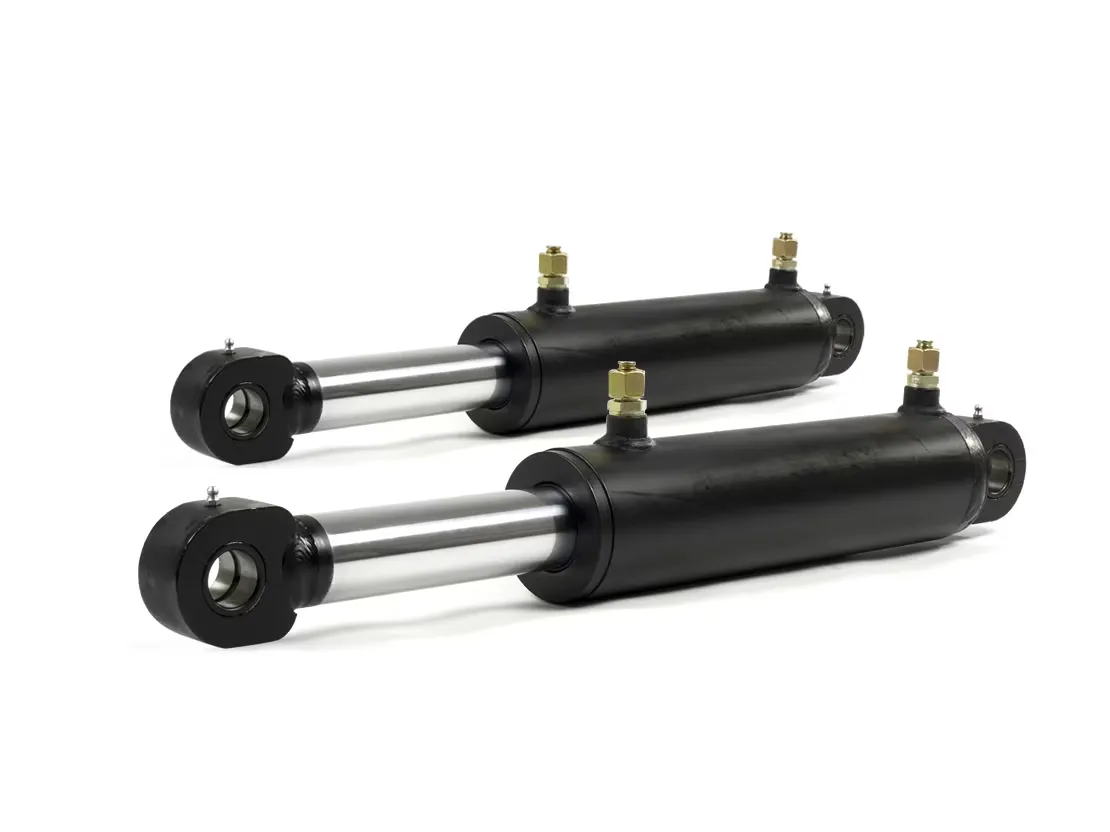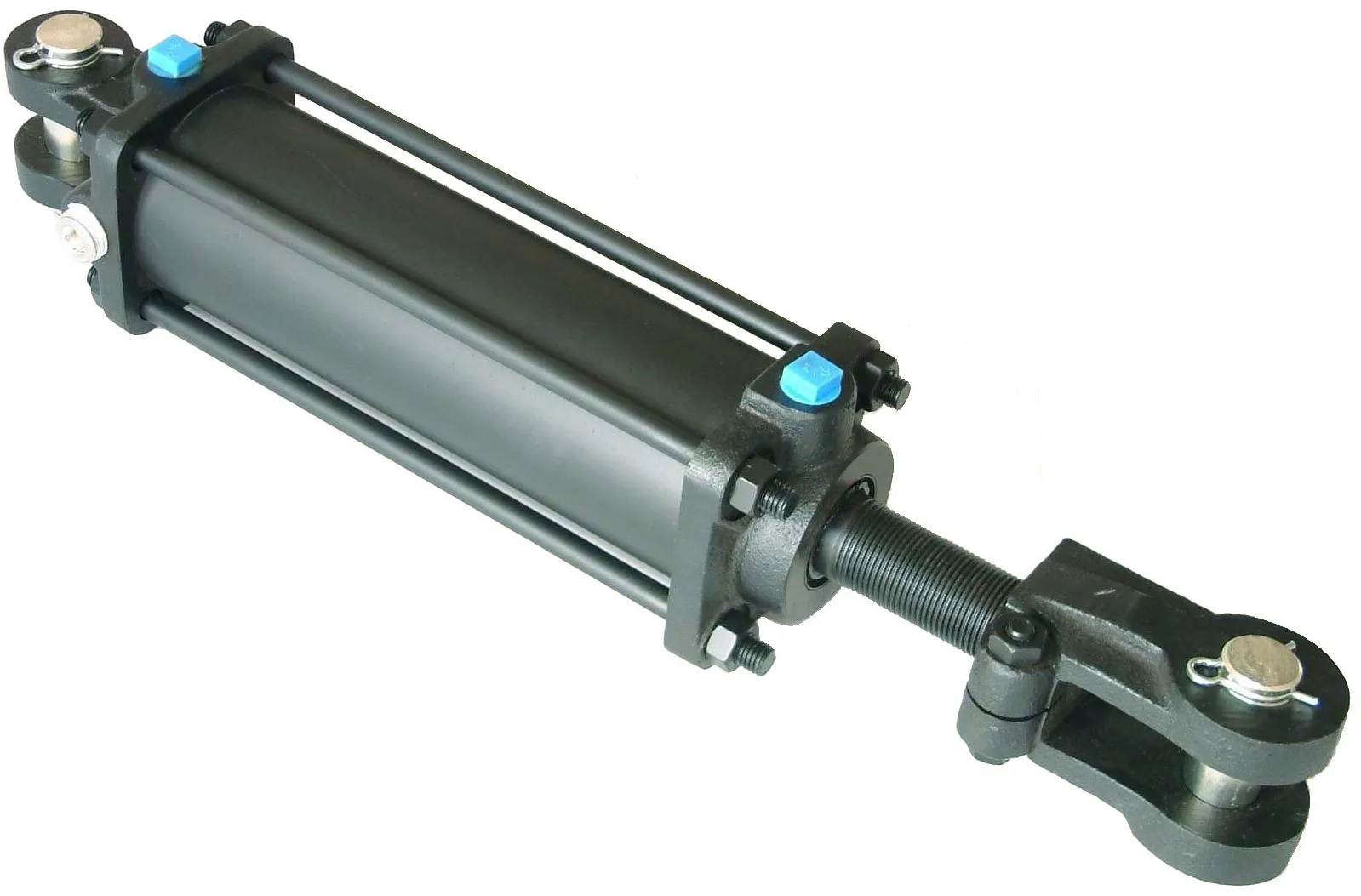Understanding Industrial Hydraulic Cylinders in Construction
In the industrial environment, hydraulic cylinders play a crucial role in powering various machinery and equipment. These devices are essential components of hydraulic systems, providing linear force and motion to perform a wide range of tasks. Hydraulic cylinders are commonly used in construction equipment to lift, push, pull, and position heavy loads with precision and efficiency.
Key Components and Structure of Hydraulic Cylinders
- Barrel: The main body of the cylinder that houses the piston and hydraulic fluid.
- Piston: Moves back and forth inside the barrel to generate force.
- Rod: Connects the piston to the external load and transmits force.
- Seals: Prevent leakage of hydraulic fluid and maintain system integrity.
The operation of a hydraulic cylinder is controlled by regulating the flow of hydraulic fluid into and out of the cylinder. When fluid is directed into one side of the cylinder, it pushes the piston in the opposite direction, creating linear motion. This principle forms the basis of how hydraulic cylinders function in construction applications.
Types of Hydraulic Cylinders in Construction
There are various types of hydraulic cylinders used in construction, each with unique features and capabilities:
- Single Acting Cylinder: Generates force in one direction, typically used for lifting applications.
- Double Acting Cylinder: Provides force in both directions, ideal for pushing and pulling tasks.
- Telescopic Cylinder: Consists of multiple nested stages to achieve long reach and compact retraction.
- Differential Cylinder: Utilizes different diameter pistons to vary speed and force output.
For example, in crane systems, double acting cylinders are commonly employed for precise control of lifting and lowering operations. Telescopic cylinders are used in dump trucks to extend and retract the dump bed smoothly and efficiently.
Advantages of Industrial Hydraulic Cylinders in Construction
- High Power Density: Hydraulic cylinders deliver substantial force in a compact design.
- Precision Control: Hydraulic systems offer precise positioning and motion control.
- Reliability: Hydraulic cylinders are durable and capable of withstanding heavy loads.
- Adaptability: Hydraulic systems can be customized to suit specific construction needs.
- Efficiency: Hydraulic cylinders provide efficient energy transfer for optimal performance.
Industries Utilizing Hydraulic Cylinders in Construction

Hydraulic cylinders find widespread use in various industries for construction applications:
- Manufacturing: Hydraulic presses use cylinders for metal forming and stamping processes.
- Construction: Excavators and cranes rely on hydraulic cylinders for lifting and positioning tasks.
- Mining: Rock drills and hydraulic shovels utilize cylinders for heavy-duty operations.
- Agriculture: Tractors and harvesters feature hydraulic systems for efficient farming practices.
By selecting the right industrial hydraulic cylinder for a construction application, factors such as load capacity, stroke length, and mounting options must be considered to ensure optimal performance and safety.
Maintenance and Care of Hydraulic Cylinders
Regular maintenance is essential to prolong the service life of hydraulic cylinders in construction equipment. Inspection, lubrication, and cleaning are key practices to ensure smooth operation and prevent breakdowns.
Installation and Maintenance Tasks
- Cleaning: Remove dirt and debris from the cylinder and surrounding components.
- Lubrication: Apply the recommended lubricant to the seals and moving parts for smooth operation.
- Checking Wear: Inspect the cylinder for signs of wear or damage and replace worn components as needed.
Fault Diagnosis and Troubleshooting

In the event of hydraulic cylinder malfunctions, it is crucial to diagnose the issue accurately and apply appropriate solutions. Common problems include fluid leaks, insufficient force output, and erratic operation.
Preventive measures such as regular inspection and proper maintenance can help minimize potential problems and optimize the performance of hydraulic cylinders in construction equipment.
Choosing the Right Industrial Hydraulic Cylinder
When selecting an industrial hydraulic cylinder for construction applications, factors such as load capacity, speed requirements, and environmental conditions should be taken into account. The right cylinder must match the performance demands of the specific construction task.
Long-Tail SEO Articles on Industrial Hydraulic Cylinders
1. “Enhancing Construction Efficiency with Custom Hydraulic Cylinders”
2. “Optimizing Heavy Lifting Operations with Double Acting Hydraulic Cylinders”
3. “Maximizing Productivity in Mining Applications with Telescopic Hydraulic Cylinders”
About Our Company
We are a leading hydraulic cylinder replacement manufacturer with a comprehensive product line catering to the needs of the construction industry. Our commitment to quality, international certifications, customized services, advanced production equipment, and reliable after-sales support make us a trusted partner in the hydraulic industry.
Author: lyl
